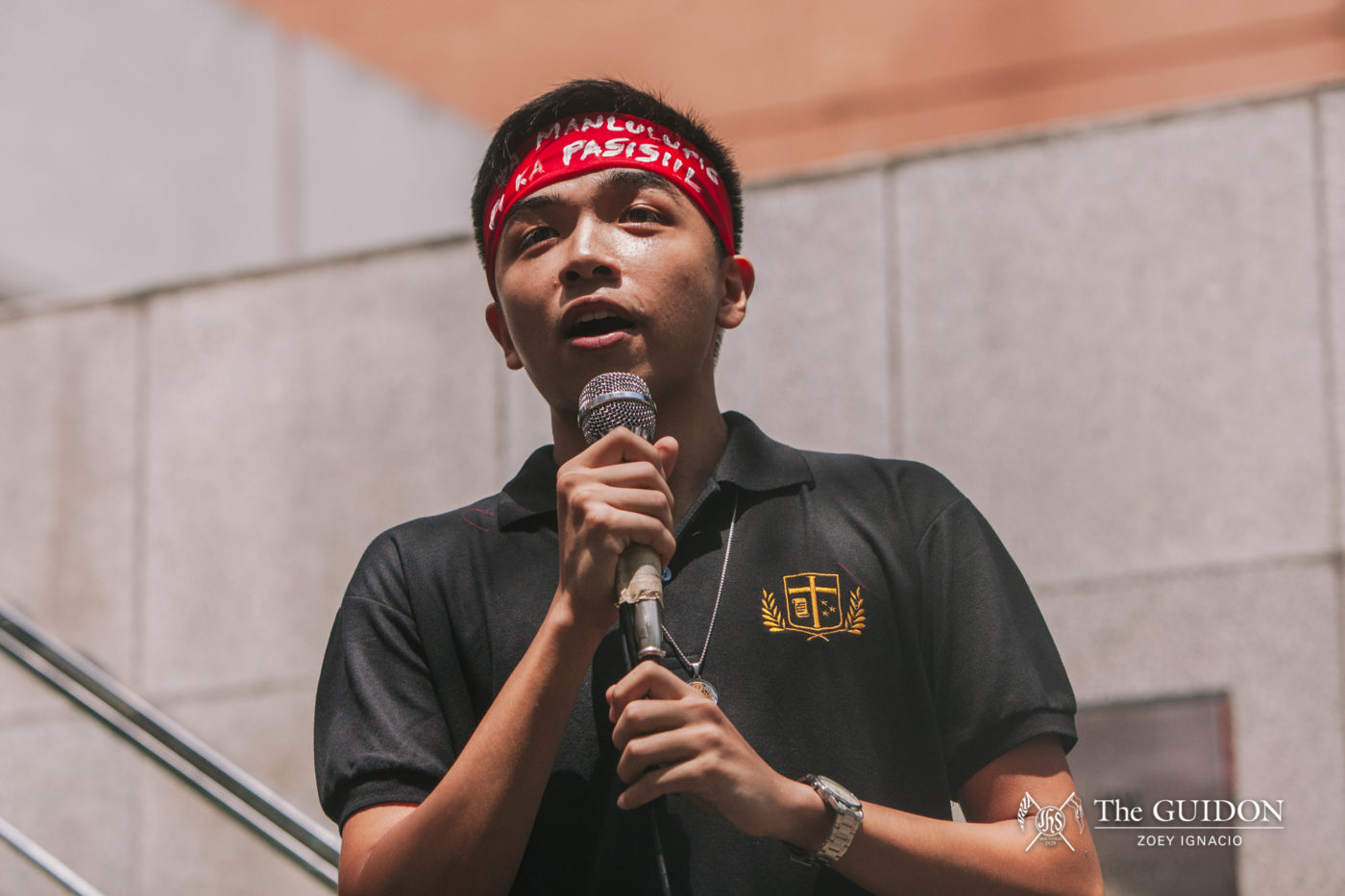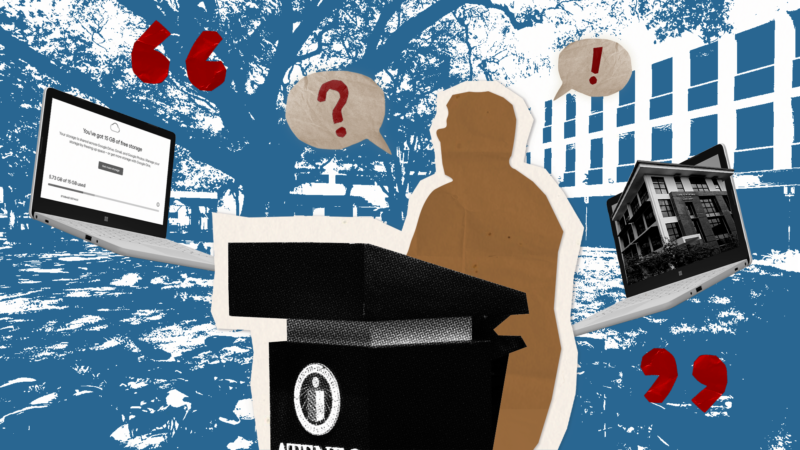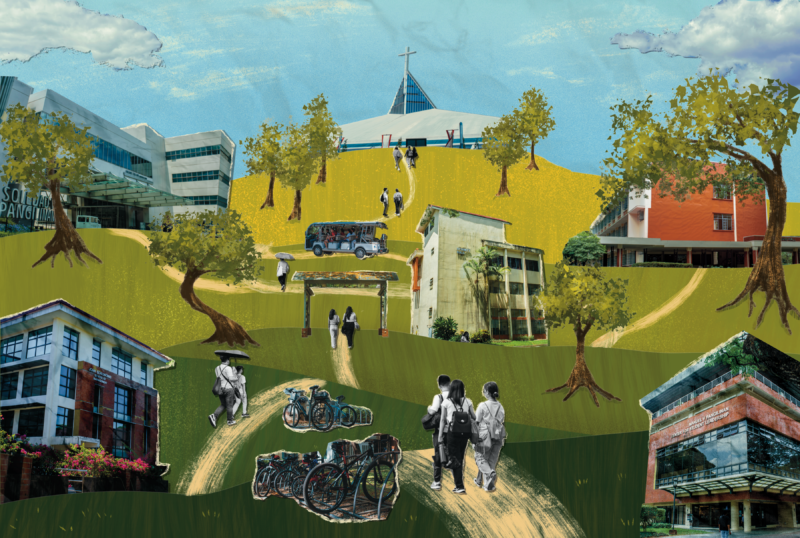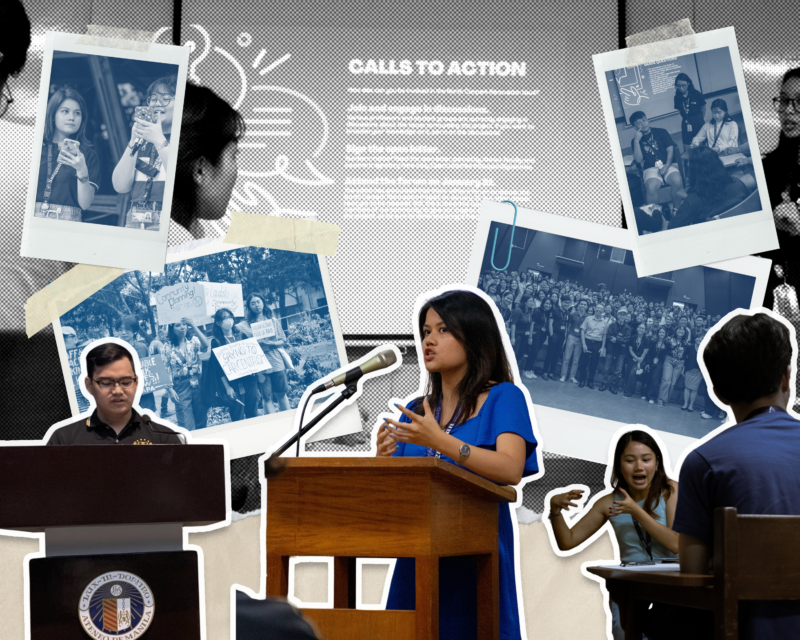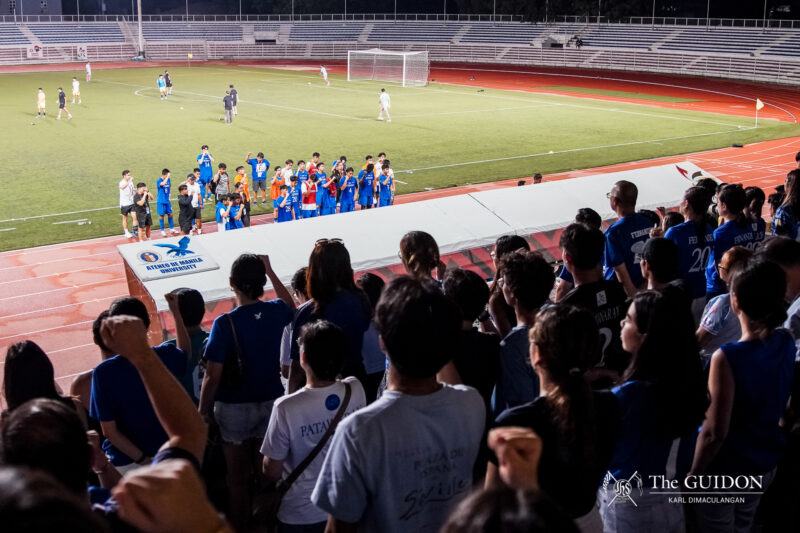INTERIM SANGGUNIAN President Jb Bejarin announced on November 30 the creation of the BluePrint for Socio-Political Engagement, an initiative that plans to prepare Loyola Schools (LS) students for the 2022 national elections.
The BluePrint is a document that outlines the Sanggunian’s proposed action plan to “actualize grassroots socio-political engagement” in the University by 2022. While the document in its current form is accessible now, it is set to re-launch in February after it is edited based on feedback from the student body.
While the BluePrint was announced after a series of Central Assembly meetings regarding the student-led strike, Bejarin clarified that the BluePrint was not created entirely as a response to said strike. He stated that the strike only guided the Sanggunian towards creating the BluePrint, but launching an initiative related to socio-political engagement within the LS has been in ideation since last May.
Current progress
Bejarin stated that the Sanggunian has been discussing the need for a socio-political engagement plan since the beginning of their interim term, with the goal of developing a concrete strategy for responding to national issues.
According to Bejarin, the Sanggunian’s plans previously only focused on maximizing voter engagement on campus. Hence, the idea of proposing a BluePrint to concretize grassroots socio-political engagement only came about at the height of the strike.
Along with this, he noted that the strike prompted the Sanggunian to revise their existing processes to be more collaborative, hence the BluePrint’s launch being made available for “open input” to the whole LS community. He explained that the BluePrint was first rolled out after consultations with home organizations, and then the document was opened for LS students to leave suggestions through their University emails.
Sanggunian External Affairs Department Head Jerard Afable echoed this need for inclusive collaboration, stating that the strikes emphasized the need for the Sanggunian to be more “on the ground.”
“We want the way that issues are resolved and issues are talked about to be as one community,” he said.
Taking shape
According to Afable and Bejarin, the Sanggunian will hold community processing sessions for home organizations starting January 23 until late February. The sessions will gather data on how the BluePrint could be further improved, as well as collate different insights about their goals.
“[The Sanggunian has] always been criticized for being in the ivory tower and just looking at issues from afar. I really do hope that through the processing sessions, […] ma-encompass natin yung pagkukulang ng Sanggu sa bridge ng issues doon sa tao,” he said.
The Sanggunian Department of External Affairs (DEA) met on January 12 for a briefing about the BluePrint timetable and the sessions that will commence. Afable said that DEA members and volunteers from all Sanggunian offices will be properly trained to become facilitators of these sessions.
Bejarin also mentioned that the insights gathered from these sessions and the document’s comments will be considered in the revisions of the BluePrint. Afterwards, student organizations and other communities in Ateneo will then pledge to attain certain goals, such as increasing the number of registered voters within the LS community.
They are also planning to conduct a Talakayang Alay sa Bayan or TALAB session about socio-political engagement this February in lieu of the 35th anniversary of the 1986 EDSA People Power Revolution.
Bejarin said that they are anticipating some challenges to arise throughout the initiative, such as logistical problems and the lack of inclusivity. He discussed the communication difficulties given the current online setting and the importance of being aware of fellow Filipinos’ aspirations in contributing to the national discourse.
“The moving parts kasi, it’s really ambitious in that sense. […] How can this blueprint really be reflective of the aspirations and the dreams of our countrymen and thereby making an impact in national discussion?” he said.
Future hopes
All in all, Afable hopes that the BluePrint will encapsulate the concerns of the student body and address the Sanggunian’s lack of action in terms of socio-political engagement. Similarly, Bejarin hopes for the Atenean community to be more politically involved and visionary.
“I hope […] the University as a whole moves towards this process of inclusion and of vision setting, because we are more than workers, we are also dreamers in that regard,” he said.
They also both hoped that the BluePrint would be continued by the next set of Sanggunian officers, as the interim period will end upon the election of new student leaders. “I hope we stay course in the process of democratization; […] to continue this process for making blueprints and offering more medium term and long term plans,” Bejarin said.

